|
Putting the "Heart" into Education
The Hong Kong community has always been described as being obsessed with materialistic pursuits; which is a disservice for educators, as they attempt to propagate an alternative perspective to life. To address the issue, the Centre for Religious and Spirituality Education was established in May 2006; with a view to providing an education in religious beliefs, values and practices, as well as instilling a spiritual dimension into the lives of teachers and students alike.
A Myth Vanished - The Rise and Fall of Enron Corporation and
Its Helmsmen
Before its bankruptcy in late 2001, Enron Corporation, one of the world's leading energy companies, was a household name for investors, and for six consecutive years had been named by Fortune Magazine as "America's Most Innovative Company". However later scandals and disclosures revealed that the company's top executives had orchestrated a series of carefully contrived financial crimes involving fraud and insider trading. These illegal practices resulted in thousands of Enron employees and investors losing their life savings, children's college funds and pensions; while the executives themselves faced numerous criminal charges. In retrospect, many people have asked ”V "Why did the consciences of these 'top executives' never check their actions resulting in their punishment by the law instead?"
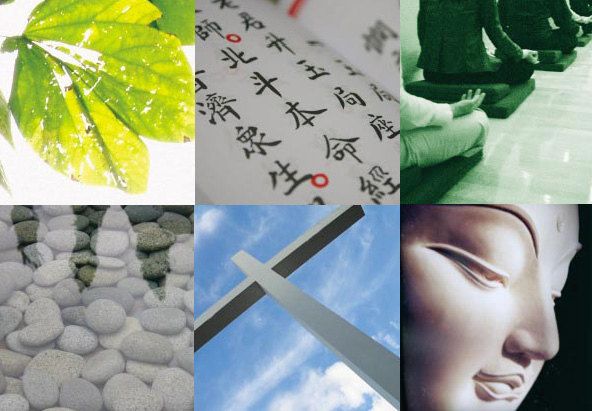

Does religious and spirituality education matter?
The Declaration Toward a Global Ethic, as promulgated in 1993 by The Council for a Parliament of the World's Religions* can perhaps best summarise the importance of religion.
|
The Declaration carried, amongst other things, the following statement:
"We know that religions cannot solve the environmental, economic, political, and social problems of Earth. However they can provide what obviously cannot be attained by economic plans, political programmmes, or legal regulations alone: A change in the inner orientation, the whole mentality, the 'hearts' of people”K”K"
The Declaration further went on to say, "Young people must learn at home and in school to think, speak, and act truthfully. ...... Without an ethical formation they (young people) will hardly be able to distinguish the important from the unimportant. In the daily flood of information, ethical standards will help them discern when opinions are portrayed as facts, interests veiled, tendencies exaggerated, and facts twisted."
|
The Declaration put forward by the Council presents the subtle transformative power of religion, which cultivates and nurtures the formation of values: personal integrity and a sense of right and wrong; care and compassion; justice and peace; respect for one another, for the earth and its creatures; and the pursuit of good, wisdom and truth. Individuals with this positive outlook on life are more likely to help achieve the greater well-being of the community, instead of or in parallel to the pursuit of their own personal interests.
* The Council for a Parliament of the World's Religions was established in 1988, to cultivate harmony among the world's religious and spiritual communities and foster their engagement with the world and its other guiding institutions to achieve a peaceful, just and sustainable world. In 1993, the Parliament of the World's Religions was convened by the Council and was attended by 8,000 people from around the world. At the Parliament, an assembly of religious and spiritual leaders jointly released the groundbreaking document, The Declaration Toward a Global Ethic.
Are standards upheld in The Declaration Toward a Global Ethic relevant to Hong Kong?
In Hong Kong, the vision of the current education reform is spelt out, amongst other things as, "Students will experience structured learning in moral, emotional and spiritual education to help them develop a healthy outlook to life." (Education Commission, 2000 Report - Learning for Life £» Learning through Life - Reform Proposals for the Education System in Hong Kong). To realise this vision, it is necessary to have dedicated teachers who are motivated by a sense of purpose in life, are keen to help promote the values of human well-being among their students, while also developing a sense of the meaning of life in students, which goes beyond pure materialistic pursuits. It is thus apparent that education involves elements from both the religious and spiritual dimensions; and to enhance the outcome, educators should at least be trained in the delivery of religious and spiritual education.
Some Facts and Figures
Buddhism and Taoism have a large following in Hong Kong. In addition, there is a sizeable Christian community of around 660,000 people, consisting mainly of Catholics and Protestants, forming about 10% of the total population. Other major religions practised in Hong Kong include, among others, Confucianism, Islam
(90,000 Muslims), Hinduism (40,000 Hindus), Sikhism (8,000 Sikhs) as well as Judaism.
(Source of information: Hong Kong Year Book 2005, Chapter 18: Religion and Custom)
On the education front, figures available as of 2005, reveal that there were 1,412 teachers teaching Ethics / Religious Studies / Religious Education in schools. Of this number, 1,193 (84.5%) were "non-subject-trained". In other words, they had not studied subjects relevant to Ethics and / or Religious Studies in their previous academic activities. Only 219 (15.5%) were "subject-trained". Yet of this number, 119 (54.3%) had not received any teacher training relevant to Ethics and / or Religious Studies.
(Source of information: Education and Manpower Bureau 2006 - Statistics on Primary and Secondary School Teachers 2005/06. Hong Kong: Printing Department)
These figures reveal the urgent need to better prepare our teachers for the delivery of religious and spirituality education; if the community wishes to educate its young people as individuals with a positive outlook on life. 


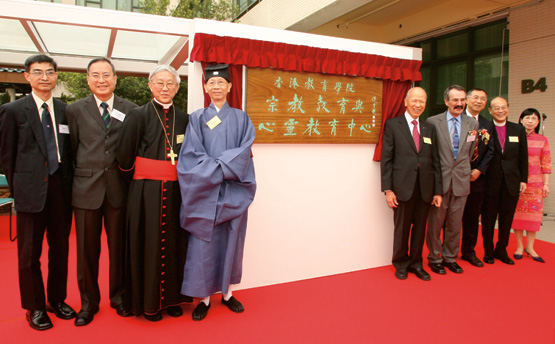
Centre for Religious
and Spirituality Education
Since there has been no structured religious and spirituality education for teachers in the territory so far, the HKIEd Centre for Religious and Spirituality Education (CRSE) can be described as the first of its kind in teacher education institutions in Hong Kong. Established in May 2006, the Centre aims to provide religious and spiritual education to prospective teachers; in addition to strengthening their education in related pedagogies, practice and research.
The CRSE offers General Education modules in the area of Religious and Spirituality Education hand-in-hand with services that promote and enrich religious and spirituality well-being through talks, seminars, meditation and spiritual practice sessions, personal consultation and the sharing of individual spiritual concerns with spiritual advisers.
Programmes and Modules
| Existing and planned General Education modules in the area of Religious and Spirituality Education include the following: |
 |
| |
£» |
Buddhist Ethics: conflicts and dilemmas in the modern world |
|
| |
£» |
Awareness of the Buddha and the 21st Century |
| |
£» |
Christianity and Social Concerns |
| |
£» |
Religion and Life |
| |
£» |
Abrahamic Faiths: Judaism, Christianity and Islam |
| |
£» |
Ethics and Religion |
| |
£» |
The Theory and Practice of Confucian Morality |
| |
£» |
Catholic Social Ethics |
| |
£» |
Immortals and Immortality: the Quest for Eternality |
| |
£» |
Ways to Liberation: a religious perspective |
| |
£» |
Philosophical Reflection on Religion |
| |
£» |
Food and Clothes: differences and similarities in Buddhist traditions |
| |
£» |
Global Religion: Islam |
| |
£» |
History of Taoism |
| |
£» |
Mindfulness Meditation |
| |
£» |
Indian Buddhism and its Development |
| |
£» |
Taste of Zen and Enlightenment |

Other Services: Seminar
The Seminar on "Religious Education in Hong Kong Schools: A Sharing of Experience" was organised on 27 May 2006. A hundred and fifty teaching professionals from schools sponsored by the six major religions in Hong Kong were invited to the event. At the seminar, principals and teachers shared their views on religious education, corresponding teacher education, the challenges faced by religious education under the new senior secondary system, as well as the experiences and expectations of frontline teachers in implementing religious education. |
Talks
Held at regular intervals since November 2006, the Centre has so far organised a number of talks including "In the face of suffering" by Rev Lee Ching-chee; "Cultivating love and understanding: Embracing anger and fear" by Venerable Thich Chan Phap Kham; "The pursuit of happiness" by Dr Pang I-wah (HKIEd) and "Imagining sacred space and pilgrims' consumption: Roaming spirituality in Mecca and Jerusalem" by Dr Ho Wai-ip (HKIEd).
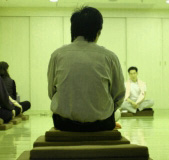 |
Meditation and Spiritual
Practice Sessions
An inter-religious Quiet Room is open for the use of the Institute community for meditation and spiritual practices, or simply to provide moments of silence for personal reflection and contemplation.
|
Personal Consultations
Experienced spiritual leaders of different religious beliefs will be stationed at the Institute's Tai Po Campus at fixed times during the week. Members of the Institute and the school community can arrange to have face-to-face discussions with these religious teachers, who act as spiritual advisers on personal spiritual concerns.
The Way Forward
In the short to medium term, the Centre will work towards contributing to the scholarship of the theory and practice of Religious and Spirituality Education through teaching and the publication of research findings in scholarly and professional journals, conferences, pamphlets and books for use by teachers, educators and policy-makers. In the long term, it is the Centre's goal to provide recognised and accredited qualifications for the teaching of Religious and Spirituality Education related subjects in Hong Kong schools. Where appropriate, it will also provide opportunities for students who wish to opt for a specified combination of related modules that constitute either a second teaching subject or a subject concentration. 
ENQUIRIES

What they say about religious and spirituality education?
"People today see things as relative and pluralistic. Religious and spirituality education can thus no longer rely on direct instruction. A single authoritative answer is often insufficient as young minds question the meaning of life. Even if it does work initially, beliefs often tumble when they leave school. Furthermore, youngsters want no spiritual advice. They refuse to be disciplined or counselled and they do not take answers for granted. They learn by initiating their own questions on life. Thus to have an impact, teachers must learn to walk on an equal footing with their students, understanding their struggles and confusion, and share with them religious and spiritual perspectives on life's problems."
Mr Lee Chi-hung
Chief Curriculum Development Officer
(Personal, Social and Humanities Education)
Curriculum Development Institute
Education and Manpower Bureau
"Of all the philosophies, religion is the most interesting. Whatever the religion, the concept behind it is always fascinating. Although I do not follow any religion, I do believe that religion will bring me many benefits. We cannot deny the immense power of religion over man. I hope that after studying the different religious philosophies more thoroughly, I will be able to gain more insight into the meaning of life, and become more at ease with the ups and downs of life."
Ms Ho Yiu-yiu, Year 1 student
Bachelor of Education (Honours) (Primary) Programme (Four-Year Full-Time)
"I was once asked to speak to students about the Race Discrimination Bill during our school's morning assembly. I found that it is easier to explain the concepts of equality, benevolence and anti-discrimination in a school with a religious background. The stories from the Bible and the acts of the people recorded there, God as the creator of the Universe and the life of Jesus, are all vivid illustrations of those abstract concepts of humanity. The psalms have a subtle influence on students as well."
Mr Yip Cheong-man, Teacher
SKH Li Fook Hing Secondary School, Chai Wan
"The Centre for Religious and Spirituality Education has a positive influence on the promotion of studies in relevant fields. The programmes offered will impart knowledge on the different backgrounds of the various religions, and their rich underlying philosophies. Pre-service teachers will be able to open their hearts and minds, culturing and acquiring a good character. When they become teachers themselves, they will be able to encourage their own students to be brave, generous and treasure the valuable things in life; resulting in the building of a solid foundation for healthy and positive views on life. To bring up such students, we first need to nurture teachers like that."
Mr Ng Yau-keung, Principal
The Hong Kong Taoist Association Ching Chung Secondary School |


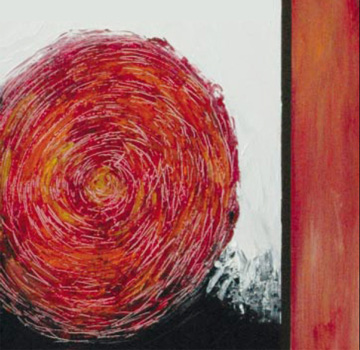
Recovering the Sacred Mission in Education

Teaching is a job, a profession, and a calling. A teacher who answers the call of her own spirit, and offers up every day, every act for the best possible way to teach and to learn - she must first of all be an authentic person, one who is true to her conscience, to her own ongoing intellectual, affective and moral growth. Only such a person can serve her students with a mind that is ever fresh, a heart that is earnest, and a sense of direction which is always unclouded.
The spiritual values of the school of Confucius are built on the idea of ren or "benevolence". The word ren means "the way two persons should relate to each other", it also means "the life-bearing seed within a fruit". The lives and careers of many of our good teachers manifest in present-day Hong Kong the traditional values of ren. With every student, the good teacher insists with gentle steadfastness on "the way two persons should relate to each other", the way of loving kindness, patient understanding, and a sense of direction.
In this age of market fundamentalism, when the climate of opinion dictates that
everything - including education - has to be conducted according to the principles and practices of commerce, such humane values are like the "temple bells in the morning and drums in the evening" that pierce the fog. They are "the salt of the earth, the light on the hill which would not be hidden under a bushel measure". In recent years, whenever people in authority speak about education, the only concern is on economic returns and competitiveness. What these leaders expect of our students is for them always to "value-add" in order to increase their own incomes and buying power. In other words, we can safely assume that under market fundamentalism, a person has only two main roles: to be an employee and a consumer; all other roles are of no consequence. But our many roles and relationships as someone's children, parents, students, teachers, neighbours; as citizens, members of one religion or another, and inheritors/transmitters of our cultural traditions - all these are independent of the market, and may even be contradictory to the market. All these roles, which mark us as human and link us to one another in authentic, deeply meaningful relationships, are dispensable for the market fundamentalist, and may indeed be seen by him as obstacles to be bulldozed.
As professional teachers working in an inescapable milieu of market fundamentalism, how do we find our humanistic ways to educate, and to teach by treating both our students and ourselves as human beings? This is the question which we must constantly ponder. I believe the mission of education is to nurture our children and young adults to respect the basic rights and dignity of all people; to cultivate in them honesty, fairness, justice, peace, and love for all humanity and for the natural environment; to teach them to practise compassion for the less fortunate - not to honour the rich and bully the poor; to encourage them to live up fully to each one's different potentials, to adhere to the faith that "the truth will make you free", and not to take the accumulation of wealth as their life goal. I hope our young people will find their inspiration in Lao Tzu's wisdom: "The greatest good is water; water benefits all and never strives for its own gain". I hope our young people will not live in order to compete for fame and fortune, for performance indicators, for a higher place on someone's artfully compiled league table.
Under the sway of market fundamentalism, education is one line of products among many commercial goods, and teachers are no more than some form of human resource on the labour market. Both are goods to be bought and sold. Teachers do not have any special dignity; education has no sacred mission.
Finding ourselves in the midst of this tempest, what shall we do as teachers to help our pupils? And what should we do as teacher educators to help teachers? Braving the onslaughts, we need all the more a clear mind and deep practice, to enable ourselves to reflect on and to handle our professional work and our daily lives - a practice on the basis of an abiding faith in life's ultimate concern.
Religious and spirituality education is
each person's search for answers to
life's ultimate questions, and the
cultivation of strength of one's being
through spiritual practice.
The Hong Kong Institute of Education was formed out of an amalgamation of five government-operated colleges for teachers, and as such never had anything to do with religious education, although of course many of our staff and students have their own religious beliefs and commitments. Our colleagues are concerned that Hong Kong education has always overstressed academic performance, and in recent years has focused almost exclusively on an economic orientation, and consequently neglected spiritual values and needs. We believe it is important, and urgent, to offer help to our young people for their spiritual growth. Hence we decided to establish this Centre for Religious and Spirituality Education to provide academic modules on religious traditions, philosophies of life, spiritual practices and religious education. These modules will form part of the General Education offerings of our Bachelor of Education curriculum for our full-time pre-service students, and will be available to these students as free electives. Such a concept, to offer a whole series of courses covering all major religious traditions, as free electives for students across the entire institution, is unprecedented among public universities in Hong Kong.
The Centre for Religious and Spirituality Education will run more than a dozen courses on religious teachings and spiritual practices, to give Hong Kong's next generation of teachers an opportunity to become acquainted with the major religions in our society, to help them reflect on, and search for meaning in their own lives, in order to elevate the spiritual quality of our new teachers, so that they will be better able to nurture a sincere, compassionate, loving, serene, just and harmonious society. We offer these courses not to proselytise or to drive our students towards any religion, but to give them the opportunity, as adults and as university students, to learn
to respect and to appreciate critically the major religions of the world, to deepen their thinking and their concerns, so that even when swept washed in the mainstream discourse of market fundamentalism, they still have a chance to keep their sights above the waves and see things a little farther, a little deeper, to know and to value their own spiritual selves a little more. If some among them, having taken our courses, should convert to this or that religion; or should decide not to commit to any religion but develops respect for the authentic faith of others; or should come to realise the limitations of the prevailing belief in homo economicus: these are what I would count as a rich harvest for our modules in religious and spirituality education. 


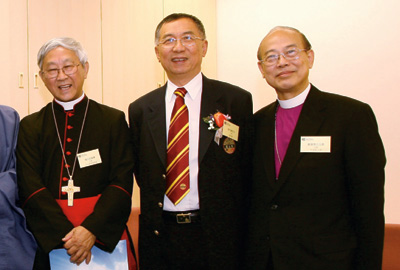
Spiritual Views from our Religious Leaders

"What is education? It is the continuation of God work of creation. It is like God breathing His own life onto earth to create man with a soul. That is why in education we found holiness and greatness. It is my wish that through the establishment of CRSE, the teachers from HKIEd could fully breathe in the love of God to nurture many, many lives."
His Eminence Cardinal
Joseph Zen Ze-kiun, SDB
Bishop, Catholic Diocese of Hong Kong
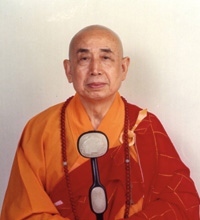 |
"Science and technology only help to improve man's physical, but not his spiritual, well-being. Spiritual education is vital to man's future because a righteous heart is precursory to man's moral cultivation. The setting up of the CRSE is equivalent to the sowing of good seeds for religion. Nurtured by devoted teachers, the Centre will surely blossom and bear fruit in the days to come, making invaluable contributions to our society."
Venerable Kok Kwong
President, the Hong Kong Buddhist Association |
"Tiny as Hong Kong may be, people of different religious backgrounds live together peacefully and harmoniously. The phenomenon itself can be deemed a good model for the world. Our support goes to the spirituality education developed by the HKIEd because teachers of basic education trained by the Centre will pass the philosophies of virtue and the spirit of our fine tradition onto the next generation. Hong Kong can then become a more peaceful city and the world a more peaceful place, too."
Mr Hsu Show-hoo, MBE
Chairman, Sik Sik Yuen
"To rebuild a society founded on humanity, we simply cannot ignore the spiritual development of man. The CRSE established by the HKIEd will train numerous teachers, who will in turn spread the voice of religion to influence countless students and their families. In this way, we can reconstruct an immaterial society that emphasises spirituality, humanity, justice and integrity."
The Most Reverend Dr Peter Kwong Kong-kit
Archbishop, Hong Kong Sheng Kung Hui
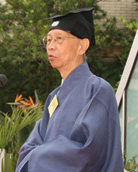 |
"Taoism is the traditional religion of the Chinese. Loyalty and filial piety that Taoism emphasises are still important moral principals of today. Lao Tzu's ”„Dao De Jing' has a far-reaching influence on world culture. Let me quote from the 64th chapter for mutual encouragement ”V 'a journey of a thousand miles starts from the spot under one's feet.' The religious and spirituality education started by the HKIEd will surely enjoy a very splendid success in the future."
Mr Mak Chi-fee
Chairman, Ching Chung Taoist Association of Hong Kong
|
|


The Venerable Zen Master Thich Nhat Hanh
Visits Hong Kong
Register Now for His Mindfulness Activities in May 2007
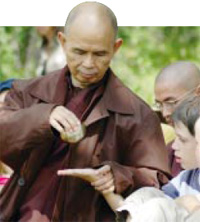 |
|
Thich Nhat Hanh, the revered Vietnamese Buddhist monk and teacher whose philosophy of "engaged Buddhism" helped to end the decades-long Vietnamese War, will be in Hong Kong from 9 to 19 May 2007. His Hong Kong activities are scheduled in the break between his retreats in Vietnam and his trip to Thailand, a visit he is making upon the invitation of the King of Thailand.
|
|
About Thich Nhat Hanh
Born in central Vietnam in 1926, Thich Nhat Hanh joined the monkhood at the age of sixteen. Witnessing his war torn country ravaged by bombings and confronting the human suffering of his fellow countrymen, Thich Nhat Hanh founded the "engaged Buddhism" movement. Together with the School of Youth Social Service, a grass-roots relief organisation he had founded, he helped to rebuild bombed villages, set up schools and medical centres, resettled homeless families and organised agricultural cooperatives. At the same time, the Zen master adhered to the contemplative and meditative life of the Buddhist monasteries.
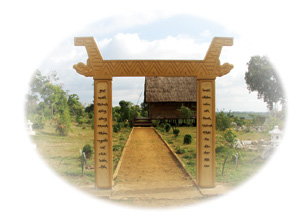 In 1966 after visiting the US and Europe on a peace mission and delivering an anti-war address, he was banned from returning to Vietnam. He thus settled in France. In 1967 he was nominated by the Reverend Martin Luther King, Jr., for the Nobel Peace Prize. In 1982 Thich Nhat Hanh founded Plum Village, a Buddhist community in exile in France, where he continued his work to alleviate the suffering of refugees, the Vietnamese boat people, political prisoners, and hungry families not only in Vietnam but throughout the Third World. In September 2001, just a few days after the terrorist attacks on the World Trade Centre, he talked about non-violence and forgiveness in a memorable speech at the Riverside Church in New York City. In September 2003, he addressed members of the US Congress, leading them through a two-day retreat. In 1966 after visiting the US and Europe on a peace mission and delivering an anti-war address, he was banned from returning to Vietnam. He thus settled in France. In 1967 he was nominated by the Reverend Martin Luther King, Jr., for the Nobel Peace Prize. In 1982 Thich Nhat Hanh founded Plum Village, a Buddhist community in exile in France, where he continued his work to alleviate the suffering of refugees, the Vietnamese boat people, political prisoners, and hungry families not only in Vietnam but throughout the Third World. In September 2001, just a few days after the terrorist attacks on the World Trade Centre, he talked about non-violence and forgiveness in a memorable speech at the Riverside Church in New York City. In September 2003, he addressed members of the US Congress, leading them through a two-day retreat. |
The Zen master's life has been dedicated to the importance of inner transformation for the benefit of individuals and society. He has received widespread recognition for his work with Vietnam veterans, his meditation retreats as well as his prolific writings on meditation, mindfulness, and peace. He has published some 85 titles of poetry, prose, and prayer. More than half of these publications are in English, including the best selling Call Me by My True Names, Peace Is Every Step, Being Peace, Touching Peace, Living Buddha Living Christ, Teachings on Love, The Path of Emancipation, and Anger.
Thich Nhat Hanh currently lives in Plum Village, France in the meditation community that he founded. There he teaches, writes, and gardens, in addition to also leading retreats worldwide on "the art of mindful living". 


| Venerable Thich Nhat Hanh in Hong Kong 2007 |
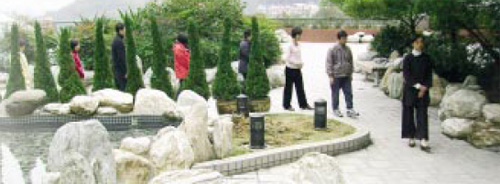
|
| Mindfulness Retreat Peace and Joy: The Fruits of Mindful Living |
11-15 May 2007
(Friday - Tuesday, 5 days and 4 nights)
Wu Kwai Sha Youth Village |
 |
Target Participants
Student teachers, teachers and principals, social workers, counsellors, healthcare professionals, psychologists, and members of the general public |
 |
Teacher and Instructors / Speakers
The Venerable Thich Nhat Hanh and Plum Village Sangha |
 |
Languages
English. Cantonese translation provided |
 |
Capacity
500 residents, 300 commuters |
|
|
Cost
HK$1,000 - residents
HK$600 flat rate - 3 days / 4 days / 5 days for commuters |
 |
| * Financial assistance up to HK$900 per person may be approved for substantiated requests by local full-time students, newly employed teachers (1st or 2nd year) and any persons with need. |
 |
Main Features
Guided meditation and chanting, sitting meditation, Dharma talks, walking meditation, mindful meals, Dharma discussions in small groups, touching the earth practice, total relaxation, beginning a new practice, etc. |
 |
| All attendants will be expected to observe Noble Silence during the 5-day session. |
|
 |
Day of Mindfulness Stresses and Changes:
Coping and Transforming |
|
|
Capacity
900
|
 |
Cost
Free admission with application |
 |
Main Features
Guided meditation and chanting, sitting meditation, Dharma talk by the Venerable Thich Nhat Hanh, outdoor walking meditation, mindful meals, total relaxation and Dharma discussions
|
|
 |
| Public Talk Love and Understanding:
Path to True Well-being |
18 May 2007 (Friday)
Hong Kong Convention and Exhibition Centre |
 |
Target Participants
The general public |
 |
Teacher and Instructors / Speakers
The Venerable Thich Nhat Hanh and Plum Village Sangha
|
 |
Languages
English. Cantonese translation provided |
|
|
Capacity
5,000
|
 |
 |
Cost
Free admission with ticket |
 |
Main Features
Dharma talk, sitting meditation and singing of Dharma songs |
|
 |
Registration
On-line registration : http://www.ied.edu.hk/crse/
Tel : 2948 8279 Fax : 2948 8407
Places are limited, reservations for these activities are on a first come, first served basis. |
|
|





